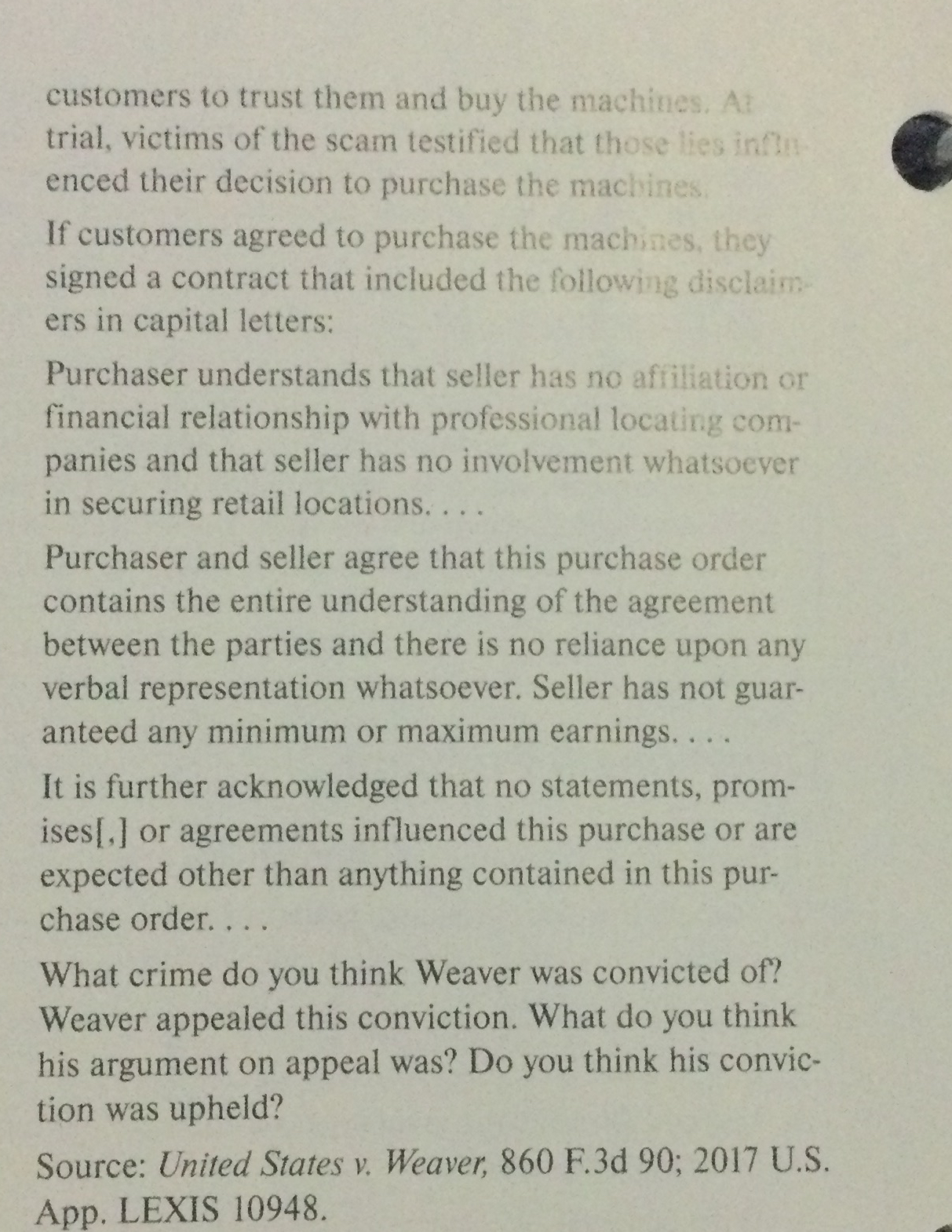Answered step by step
Verified Expert Solution
Question
1 Approved Answer
From 2 0 0 4 to 2 0 1 0 , Edward Weaver was the CEO of Vendstar, a corporation that sold candy - vending
From to Edward Weaver was the CEO of Vendstar, a corporation that sold candyvending machines to approximately customers who spent a total of about $ million on the investments. Although Vendstar's promotional materials and salespeople represented that the investment opportunities would be lucrative, for the most part, thevending machines would earn Vendstar's customers almost no money. Customer complaints became so frequent that Weaver assigned a Vendstar employee to respond to those complaints full time. In the end, many customers lost virtually all of their investments in Vendstar. The size of the investments varied, and the most common transaction involved the victim paying $ for a package that included candyvending machines and an initial supply of candy, although some customers spent significantly more than that.
Under the Vendstar scheme, potential customers would respond to Internet or newspaper ads approved by Weaver. Vendstar would mail them a brochure, order form, and certain disclosure documents. The brochure, which Weaver also approved, included claims that the salespeople were "Vendstar vendors themselves" and promised that the investments had "little risk." Vendstar salespeople would then follow up with customers over the phone. During those phone conversations, salespeople routinely lied to customers, promising them utterly unrealistic earnings and claiming that the investments were sound. Salespeople also falsely stated that they owned their own Vendstar machines, a misrepresentation that encouraged
customers to trust them and buy the machines. AI trial, victims of the scam testified that those lies in enced their decision to purchase the machines
If customers agreed to purchase the machines, they signed a contract that included the following disclaim. ers in capital letters:
Purchaser understands that seller has no affiliation or financial relationship with professional locating companies and that seller has no involvement whatsoever in securing retail locations...
Purchaser and seller agree that this purchase order contains the entire understanding of the agreement between the parties and there is no reliance upon any verbal representation whatsoever. Seller has not guaranteed any minimum or maximum earnings.
It is further acknowledged that no statements, promises or agreements influenced this purchase or are expected other than anything contained in this purchase order.
What crime do you think Weaver was convicted of Weaver appealed this conviction. What do you think his argument on appeal was? Do you think his conviction was upheld?
Source: United States v Weaver, Fd ; US App. LEXIS

Step by Step Solution
There are 3 Steps involved in it
Step: 1

Get Instant Access to Expert-Tailored Solutions
See step-by-step solutions with expert insights and AI powered tools for academic success
Step: 2

Step: 3

Ace Your Homework with AI
Get the answers you need in no time with our AI-driven, step-by-step assistance
Get Started


